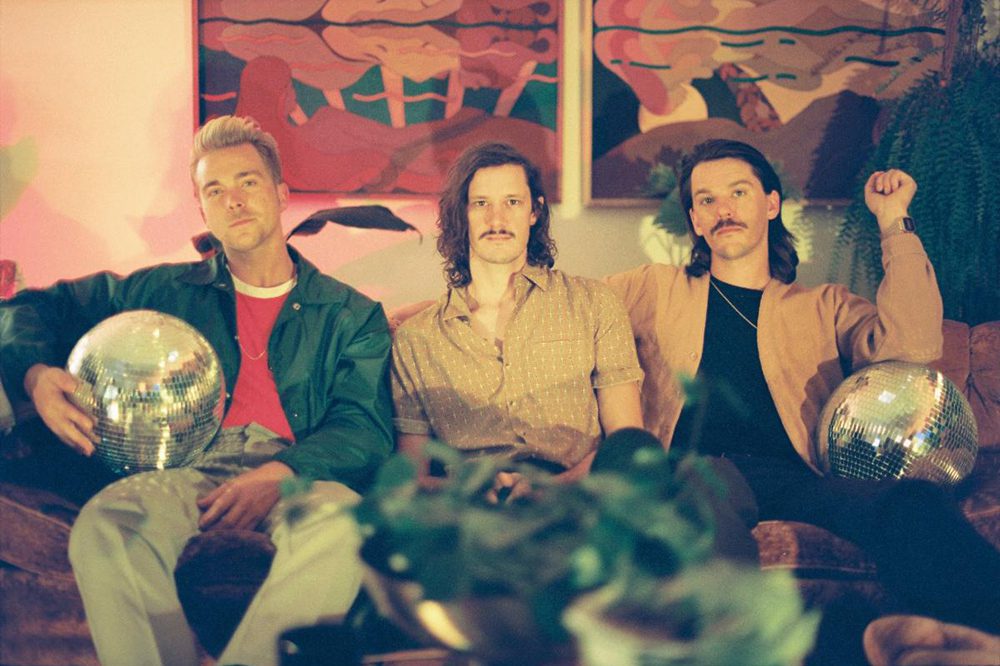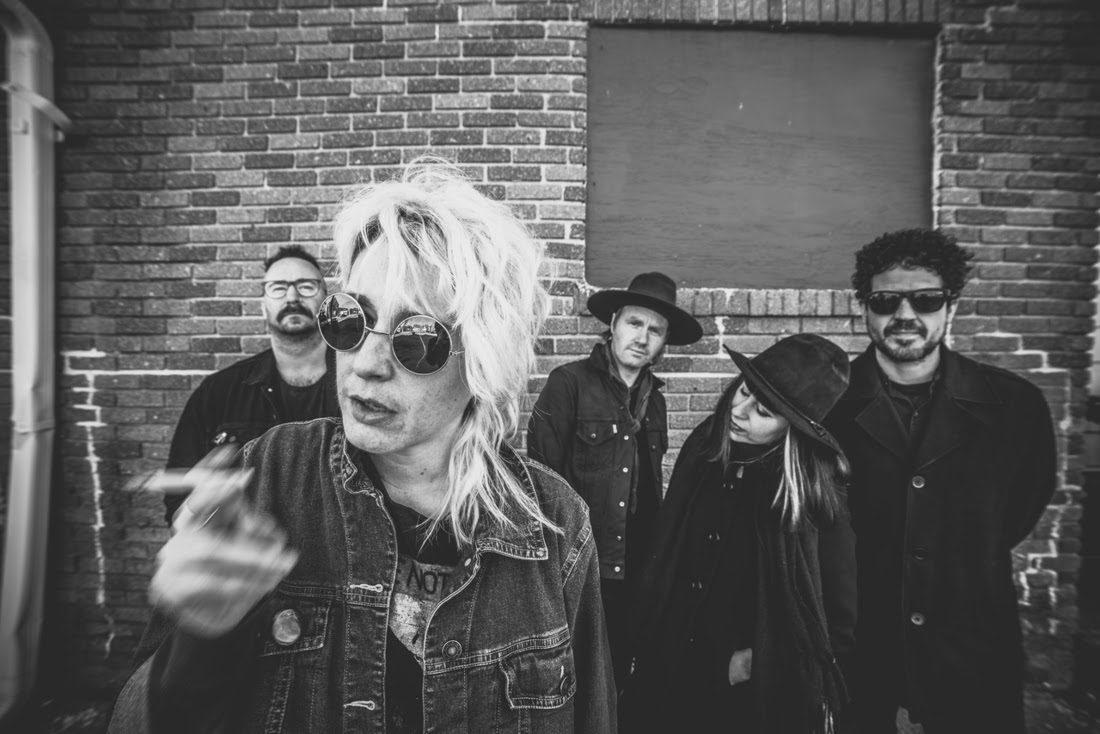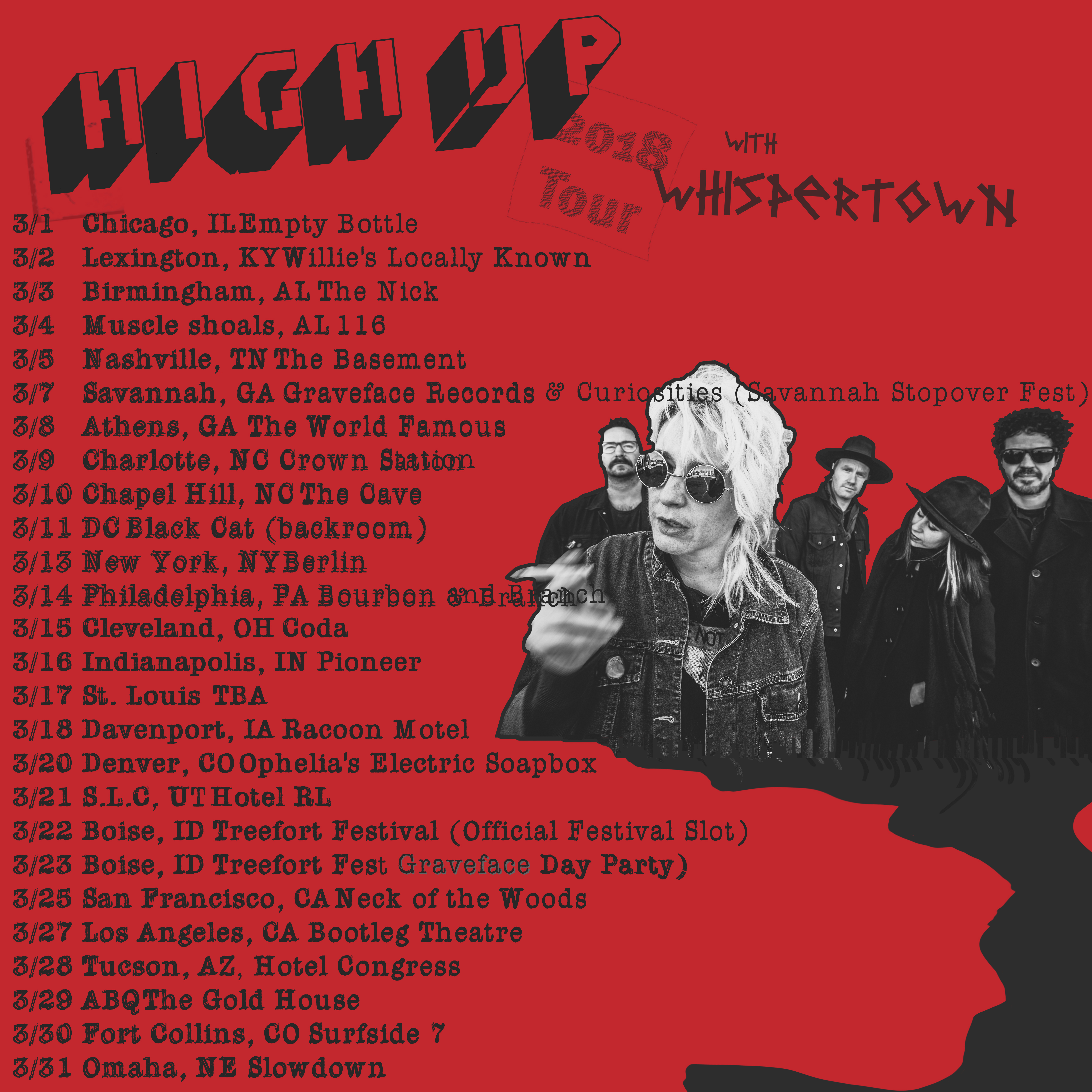

Jacob Bryant, Trevor Davis and John Davidson owe a debt of gratitude to their high school history teacher, Mr. Johnson. Growing up as childhood friends in the small town of Pinson, Alabama (just outside of Birmingham), they often ditched history class to play music in the band room, fibbing to Mr. Johnson that they had “photography class.” When Johnson found out about their ploy, he took the three students aside at the end of the school year and was ultimately gracious, not taking any disciplinary action outside of scolding them for lying. Perhaps, if Mr. Johnson had been more punitive, the trio might never have formed The Brummies. “We gave him enough hell that we probably should give him a big old thank you,” Davidson shares in a phone interview with Audiofemme. “At the time, it felt like we were doing something cool – we just fed off each other’s energy. It just naturally happened.”
In November, with the release of their sophomore LP Automatic World, The Brummies showed how far they’ve come since those days skipping class – or even the ensuing years they spent playing in Davidson’s parent’s garage using his father’s hand-me-down equipment, becoming so invested in the music that they skipped prom for band practice. “We loved music and loved playing it, and wanted to keep doing it and get better at it, and try our hand at writing original songs and found out that we had a natural ability to be able to do that,” Davidson recalls.
Their passion and hard work translated into gigs at 21+ clubs in Birmingham when they were still underage. Yet it was these gigs that instilled them with the buzz for live performances. “That was our way in,” Davidson recalls. “As soon as you play in front of somebody for the first time, we were hooked. It’s just that initial feeling, that adrenaline rush that you get that makes you want to do it some more.”
In spite of their talent and live show appeal, Davidson admits they didn’t envision themselves playing music professionally until a songwriter cousin in Nashville set them up with a meeting at the publishing company where he worked, Major Bob Music. “I don’t think we ever knew we could do it professionally,” Davidson says of music. “It just morphed basically out of wanting to do it.”
Walking “blindly” into the meeting, the group decided that if they didn’t get a deal, they’d return to Birmingham and continue to be the band they were at the time, which admittedly didn’t have “big aspirations.” But as fate would have it, all they needed was two acoustic guitars, Bryant on trumpet and a batch of original songs to be offered a publishing deal on the spot, making Music City their permanent residence five months later. “It’s evolved into what it is today, which is somehow a career,” Davidson reflects.
Thus began the journey of truly honing their sound, pulling influences from The Beatles to Bill Withers to indie gems including Mac DeMarco and dream pop duo Beach House. But the haunting sounds of Bryant and Davidson’s harmonies began to take shape long before their days under Music City lights. Born into a porch-picking bluegrass music family, Bryant continues to lean into the bluegrass harmonies he was raised on. Meanwhile, Davidson received his own voice lessons through the Church of Christ that was strictly vocal a cappella, Davidson maintaining heightened awareness for ear-catching counter melodies. Eventually, the two would blend their distinct vocal styles to create the ethereal harmonies The Brummies are known for. “We just love singing together, and some kind of natural desire that I think we both have to sing harmonies and to figure out what kind of cool counter melodies or harmonies you can put on a main melody and make it a little bit more special. Or if it doesn’t belong, there’s also beauty in the silence too,” Davidson explains.
The Brummies introduced their eclectic sound to the world with their 2018 debut album Eternal Reach, which includes the dreamy duet with multi-Grammy winner and former tour mate, Kacey Musgraves. The project also taught them about the intricacies of producing, tying in their love of sonics while catering to what the song requires.
These lessons led into their latest album, Automatic World. The title acknowledges how we operate in a fast-paced world with constant access to resources at the touch of a button, the beauty of simplicity and human connection fading in the process. “Everything’s so quick and responsive now and it’s all tech driven… that I think working hard for something is becoming a lost art,” Davidson explains. “[The title says,] slow down and value the human relationships that we have and taking the time that we have here together.”
The album’s cover is a visual representation of this concept, as Bryant sits poised at a restaurant table draped in a yellow cloth, the camera focusing on his hands, holding a triangular folded napkin. “It represents us waiting at a table and having something served to us, so it goes along with the thought of Automatic World,” Davison notes. The project boasts several themes, but one of prominence is the concept of déjà vu that manifests as a lyrical thread across 13 songs, from the falsetto-sung “I’ve got the feeling that I’ve been here before” on opening number “Cherry Blossom,” a theme that’s echoed in the cinematic-meets-psychedelic “Been Here Before,” which comes after questioning “is déjà vu only a familiar feeling?” on the trippy “Fever Dream.”
Davidson says the exploration of déjà vu arose subconsciously after the group had an “experience” in Joshua Tree that led them “somewhere out in the universe.”
“It’s an interesting concept and there’s a lot of different theories, and you can believe whatever you want to believe and make your own assumptions or interpretations of what that is,” Davidson says. “We’ve had our experiences in different places and it’s fun to question things, but also ponder on what all is out there: have we been here before and will we be here again? It’s going to look at things from 10,000 feet every now and then.”
Automatic World was a direct result of that Joshua Tree trip, sparking the creativity that inspired the music. “It’s one of those coming-of-age stories where we’re all there together and we all learned something from it and took something from that experience together and we’ll never forget it. One of the most memorable and joyous experiences that I think we’ve all had – we were able to have that together,” Davidson professes. “Really, at the core of it was love. You prioritize and see things for what they are, and the overarching theme for me, and I think for everybody, was love.”
That love pours through in songs like “Sunshine,” which radiates positivity. Album closer “Island” harbors a transcendental vibe that Davidson says brings him to a “different place,” while “Call Me” ties back into the meaning of Automatic World through human connection and the desire to slow down. “I feel like the beauty of an album is that you gotta listen to the whole thing to take it all in,” Davidson observes. “Otherwise, you’re missing out on something.”
Follow The Brummies on Instagram, Twitter and Facebook for ongoing updates.




